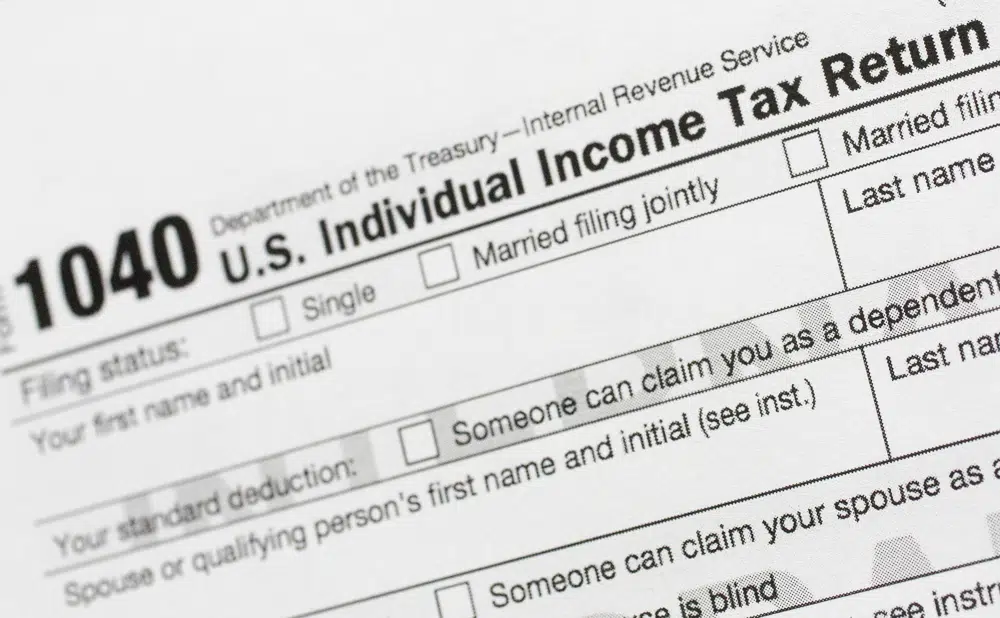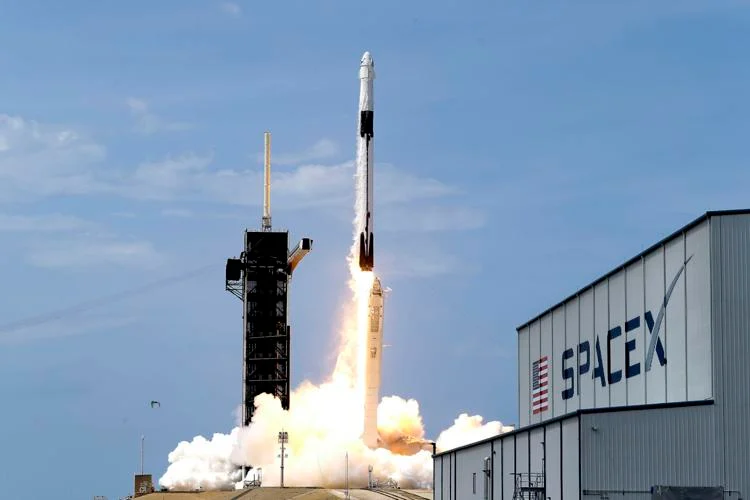Treating long COVID

On Sunday, Focus on America hosted an event in Huntsville at the Jackson Center where several doctors and other professionals spoke on treating the long COVID phenomenon that many doctors are finding in their patients. “It is the spike protein that causes long covid,” said Dr. David Calderwood. “It can last in the body for at least 15 months.” “We all know that the spike protein can cause myocarditis, which is the inflammation of the heart muscle,” said Dr. Calderwood. Blood clots are a problem in many long COVID patients, “Much of long COVID is the result of this clotting – these little tiny clots that get in our blood vessels,” Calderwood continued. “Nattokinase has the ability to dissolve the blood clots as well as the spike proteins.” Calderwood said that some research shows that the enzyme nattokinase may have other health benefits. “One study shows that it is more effective at breaking down cholesterol than the statin drugs,” Calderwood added. “Be sure to take that on an empty stomach either an hour before eating or several hours after eating.” Calderwood said that the spike protein can cause liver inflammation, lung inflammation, immune system inflammation, or harm through suppression of our immune system, leading to the reactivation of shingles and even hepatitis. It also impairs semen concentration in men and causes irregular menstrual cycles in women. CDC data shows that cancer has increased since 2021, and Defense Department data shows an increase in cancer diagnosis among servicemembers. Dr. Calderwood is not a proponent of the COVID-19 vaccines. “I, for one, do not want to have spike protein in my body,” Calderwood said. Dr. David Williams said he has treated over 4,000 COVID patients. “Ivermectin is one of my favorite substances on earth,” Dr. Williams said. “It is a gift of God, in my opinion. It has been used for over 50 years. Four billion doses have been administered.” “William C. Campbell and Satoshi Omura were awarded the Nobel Prize for medicine in 2015 for their work on the development of ivermectin,” Williams said. Another treatment Dr. Williams recommends is low-dose naltrexone (LDN). “I use it for a whole number of inflammatory diseases beyond COVID,” Williams said. “Most of my patients do real well with just ivermectin and LDN.” Dr. Williams cautioned that, much like antibiotics, there is a danger of coming off the medication too quickly once you start to feel better and then having the illness come back and get more serious. “You can’t go off it when you start feeling well,” Dr. Williams cautioned. Other treatments that Dr. Williams uses include glutathione, nattokinase, and serrapeptase. “These are proteolytic enzymes,” Williams said. Williams explained that he uses the enzymes in an effort to deal with COVID-related blood clotting, “Those clots are very difficult to break down.” Dr. Diane Counce is a neurologist. “People with high blood pressure, diabetes, and dementia have a very hard time with COVID,” Dr. Counce explained. Dr. Counce said patients suffering from long COVID complain of an “average of 56 symptoms.” “Over 91% took 35 weeks or more to recover fully,” Counce said. Counce said that for many people who have an adverse reaction from the vaccine can linger much like long COVID. Counce compared the effects of COVID to a cup running over. Every time you get a dose of the spike protein from a vaccine booster or another exposure to COVID-19, the spike proteins build up in the system, and eventually, it will run over and cause problems. Counce said that symptoms she commonly sees in her practice include fatigue, brain fog, poor sleep, decreased well-being, mast cell activation, increased inflammation, poor digestion, and microclotting. Treatments that Dr. Counce has been using include NAC – (N-acetyl cysteine), ivermectin, nattokinase, and naprinol. Counce listed Bell’s palsy as a condition she sees more frequently as a neurologist. Senator Katie Britt (R-Alabama) suffered from Bell’s palsy for about four weeks in August. “A UK Biobank neuromacry study showed that even mild COVID can result in a shrinking of the brain equivalent to ten years of aging,” Counce said. “COVID-19 can induce multiple sclerosis.” “I think it is up to health care providers to get on board and learn about this stuff,” Counce said.
Focus on America to hold rally in Huntsville September 17

The conservative group, Focus on America, announced they are holding a “Patriots Unite” event in Huntsville on September 17. This all-day event will begin at 8:30 a.m. and run to 5:00 p.m. Sponsors say that the event “will serve as a rallying point for individuals who believe in safeguarding their liberties and taking actionable steps to protect their families’ futures.” This event will take place at The Jackson Center in Huntsville. There are a host of presenters scheduled for this event: · James O’Keefe, renowned investigative journalist and founder of Project Veritas and O’Keefe Media Group, will be the keynote speaker. The event will feature an exclusive ticketed meet and greet with speakers, including O’Keefe, from 5:30 p.m. to 7:30 p.m. · Dr. Peter McCullough will provide critical insights into COVID treatments. · Department of Defense whistleblower Lt. Col. Theresa Long, MD. · Dr. James Thorp will present data regarding the safety of vaccines for expectant mothers. · Whistleblower embalmer, Richard Hirschman, will share his claims. · FBI Whistleblower Stephen Friend will present his evidence for the weaponization of the FBI. · Prof. David Clements will dissect data surrounding election processes. · Clay Parikh, a National Election Security expert. · Tennessee Senator Mark Pody will speak on constitutional liberties. · Valerie Borek from Stand for Health Freedom will speak on the implications of WHO regulations. · Epidemiologist and former Lt. Mark Bashaw will present his perspective on COVID-19. · Lt. Col. David “T-Bone” Trombley (a former fighter pilot who triumphed over cancer) will speak, · Dr. David Williams will cover the “mystery” behind COVID therapies. · Dr. David Calderwood will have an in-depth analysis of COVID-19 vaccine data. · Mike Parsons will address concerns about indoctrination in schools. · Pfizer whistleblower Debbie Bernal will reveal insider truths. · MK Ultra Survivor Cathy O’Brien will share revelations regarding child trafficking/mind control. · Dr. John Witcher will speak on government overreach and tyrannical encroachment of medical freedoms. · Dr. Diane Counce will speak on the neurological effects of COVID and its vaccines. Rebecca Rogers is the Director of Focus on America. “This is a pivotal moment for our nation,” Rogers said. “The Patriots Unite and Push Event will equip attendees with actionable knowledge, emboldening them to safeguard their liberties and ensure a brighter future for generations to come.” To connect with the author of this story or to comment, email brandonmreporter@gmail.com.
James O’Keefe to headline Focus on America event in Huntsville

James O’Keefe is coming to Alabama. The conservative Project Veritas founder will be one of the speakers at the Focus on America (FOA) event in Huntsville on Sunday, September 17, in Huntsville. At Project Veritas O’Keefe’s undercover reporting exposed a number of scandals. O’Keefe was forced out of Project Veritas by the non-profit’s board, and he has since started a new organization promoting citizen journalists. This is a fundraising event titled PATRIOTS UNITE & PUSH (PUP). Topics covered include election integrity, health care, education in crisis, Constitutional rights, sustainability, a cashless society, and the New World Order. There are also plans for a special “Meet and Greet” social hour from 5:30 – 7:30 PM. Other speakers include: · Dr. Peter McCullough – who has generated controversy for his counter-narrative on COVID-19 and the side effects of the COVID-19 vaccine. Dr. McCullough will be joining by Livestream. · Lt. Col. Theresa Long MD – who has alleged COVID-19 vaccine side effects in the Army. · Dr. James Thorp, a gynecologist and Maternal Fetal Medicine Physician, who claims that high-risk pregnancies in the last four years have increased significantly. On December 7, 2022, he testified in the Senate with Senator Ron Johnson. Dr. Thorp has focused his research efforts on the COVID-19 pandemic and its effect on pregnant women. · Stephen Friend is an opinion writer, author, and former state and federal law enforcement officer. The former FBI SWAT team member has become an FBI critic and whistle-blower. He is the author of “True Blue: My Journey from Beat Cop to Suspended FBI Whistle-blower.” · Richard Hirschman is an embalmer and whistle-blower. · Clay Parik has claims about election security. · David Clements is a lawyer and prosecutor. · Cathy O’Brien will speak about her experience as an MK Ultra Survivor. · Dr. John Witcher · Dr. David Calderwood – founding member of Concerned Doctors of Alabama · Dr. David Williams · Mark Bashaw – former entomologist, Public Health Center · Mike Parsons will speak on education (CRT, SEL, diversity in education) · Debbie Bernal – Pfizer Whistle-blower · Lt. Col David “T-Bone” Trombley, retired Marine and cancer survivor · Dr. Diane Counce Tickets are available starting at $75. To connect with the author of this story or to comment, email brandonmreporter@gmail.com.
New push on U.S.-run free electronic tax-filing system for all

It’s that time of year when throngs of taxpayers are buckling down to file their income tax returns before Tuesday’s filing deadline. Many often pay to use software from private companies such as Intuit and H&R Block. Almost one-quarter of Americans wait until the last minute to file their taxes. There could be a new, free option in future years. The IRS has been tasked with looking into how to create a government-operated electronic free-file tax return system for all. But that doesn’t sit well with the big tax-prep companies. The idea has been batted around and hotly debated for a long time. Congress now has directed the IRS to report in on how such a system might work. The order came as part of the $80 billion infusion of money for the tax agency over the next ten years under the Democrats’ flagship climate and health care measure, known as the Inflation Reduction Act, that President Joe Biden signed last summer. It gave the IRS nine months and $15 million to report in on how it might implement such a program and how much it would cost. Next month, the IRS will release the first in a series of reports looking into how it might be done. The possibility of an electronic free-file system operated by Washington is being celebrated by some taxpayer advocates who, for years, have said that would reflect good governance and well-serve taxpayers. Critics voice skepticism about the IRS taking on the dual roles of both tax collector and tax preparer, arguing that the new service could create a power imbalance between taxpayers and the government. Robert Marvin, an IRS spokesperson, said in an email that a key goal of the study is to “look for ways to make filing taxes as easy as possible.” “It’s important that Americans have choices that work best for them when preparing their taxes, whether it’s by using a tax professional, tax software, or free options,” he said. But big tax preparation companies have millions of dollars to lose if the program comes to fruition. Last year, more than 60 million taxpayers were serviced between Intuit, the parent company of TurboTax, and H&R Block. Tens of millions of dollars have been spent trying to influence policymakers on the issue, and lobbying data shows that the big tax companies, in particular, have spent heavily. An analysis shows that Intuit, H&R Block, and other private companies and advocacy groups for large tax preparation businesses, as well as proponents in favor of electronic free file, have reported spending $39.3 million since 2006 to lobby on “free-file” and other matters. Federal law doesn’t require domestic lobbyists to itemize expenses by specific issue, so the sums are not limited to free-file. Intuit has spent $25.6 million since 2006 on lobbying, H&R Block about $9.6 million, and the conservative Americans for Tax Reform roughly $3 million. Derrick Plummer, a spokesman for Intuit, said taxpayers can already file their taxes for free, and there are online free-file programs available to some people. Individuals of all income levels can submit their returns for free via the mail. A “direct-to-IRS e-file system is a solution in search of a problem, and that solution will unnecessarily cost taxpayers billions of dollars,” he said. “We will continue unapologetically advocating for American taxpayers and against a direct-to-IRS e-file system because it’s a bad idea.” Starting in 2006, an agreement between the IRS and some commercial tax preparation companies, known as the Free File Alliance, prevented the IRS from creating its own free tax return filing system. In exchange, tax preparation companies agreed to provide free services to taxpayers making $73,000 or less. The provision that barred the IRS from exploring a free-file system expired in 2019, but the Free File Alliance agreement to provide free services for low-income taxpayers remains in effect. Ariel Jurow-Kleiman, a tax law professor at Loyola Law School, and the New America think tank have been selected by the IRS to conduct the congressionally mandated study for the agency. Jurow-Kleiman said their mandate is “evaluating the feasibility, approach, schedule, cost, organizational design, and IRS capacity to deliver a possible direct e-file system.” But she has faced pushback from Republicans who say she does not fit the law’s requirement that an independent third party assess what it would take to deliver a direct file program. Rep. Jason Smith, chairman of the House Ways and Means Committee, sent a letter to the IRS in March questioning Jurow-Kleiman’s ability to be an independent reviewer, saying her work indicates “a clear preference for an expansive government-run system.” Smith, R-Mo., said the selection of Jurow-Kleiman and New America shows that “the Administration has already predetermined that a government-directed e-file system should exist regardless of what might be found in a truly nonpartisan, independent, third-party review.” Jurow-Kleiman said the GOP pushback to her selection was based on an unpublished draft of an article about tax compliance costs and that none of her writings have “addressed the questions that we are assessing in the feasibility study.” Molly Martin, director of strategy at New America, referred requests for comment to the IRS, saying the organization “is still working on its report.” David Williams, at the right-leaning, nonprofit Taxpayers Protection Alliance, says the “government preparing taxes is problematic.” “The taxpayer is looking for the biggest refund possible, but for the IRS, that’s not their job to look for the biggest refund for filers,” he said. “We’re concerned about that conflict of interest, but also really the ability of the IRS to do this.” To Gabriel Zucker, who helped create the tool to help families access the Advance Child Tax Credit during the pandemic, successfully setting up a free-file program is possible. “It is a really great way for government to better serve people,″ said Zucker, associate policy director for tax benefits at Code for America. Republished with the permission of The Associated Press.
David Williams: With rocket launch comes a payload of red ink

At long last, liftoff. On November 16, the Space Launch System (SLS), an immensely powerful rocket, kickstarted a weeks-long round-trip journey to the moon. So far, the Orion capsule perched on the rocket appears on track to approach and orbit the moon. When the spacecraft returns to Earth and splashes into the Pacific in December, the bipartisan backers of the lunar mission will surely hail the endeavor a success. But, the resurgent and unreserved enthusiasm for the National Aeronautics and Space Administration (NASA) reveals a critical flaw in public policy priorities. Rather than championing space exploration at any cost, lawmakers should push for cost-effective missions with private sector involvement. With $30 trillion in debt and counting, now is not the time for another black hole of wasteful spending. Even if Orion safely hurdles back to Earth, the current unmanned expedition is only one part of a larger sequence of Artemis missions. Once flight paths around the moon are adequately tested via the Orion voyage, the 5.7-million-pound SLS rocket will carry astronauts back to the lunar surface for the first time in more than half a century. The importance of the SLS rocket has certainly not been lost on appropriators. Ten years ago, prevailing opinion at America’s space agency was that the rocket would only take five years to develop and cost “only” $6 billion. Not surprisingly, development costs ballooned to $20 billion, along with a $4 billion per launch bill for taxpayers. As NASA Inspector General (IG) Paul Martin noted in a March meeting of the House Subcommittee on Space and Aeronautics, the per launch price tag is “unsustainable” and “does not include development costs required to get the Artemis program to this point in time.” SLS rocket costs are only a small quadrant in a wider galaxy of wasteful mission spending. The IG found that NASA has already spent $40 billion to get astronauts back to the moon and will likely spend nearly $100 billion total on the endeavor. Even if this mission is “successful” and astronauts manage to build a lunar base and conduct research free from harm, the goalposts for manned missions will shift at taxpayers’ expense. Combined mission (and settlement) costs to the moon and Mars could easily rival interest payments on the debt – which are projected to grow significantly due to rising expenditures and climbing interest rates. The exorbitant space exploration bill could be justified if mankind was mired in a sci-fi dystopia and had to leave the Earth pronto. If policymakers got their heads out of the clouds, though, they’d realize that robotic exploration can complete missions at a fraction of manned exploration costs. Cambridge cosmology and astrophysics professor and astronomer royal Martin Rees rightly notes, “the practical case (for human spaceflight) gets weaker and weaker with every advance in robotics and miniaturization.” NASA seems to agree: “[r]obots don’t need to eat or sleep or go to the bathroom. They can survive in space for many years and can be left out there – no need for a return trip!” And prolonged human forays into space are not without their health risks. The risks – ranging from radiation to the psychological impacts of isolation – can squander precious lives and lead to all sorts of mission complications. That’s not to say that humans should never endeavor toward the stars. But, given the large costs and risks currently thrust on taxpayers, manned exploration makes more sense as a private-sector undertaking. Already, companies are signing up to develop the successor to the International Space Station. There’d surely be an upside in taking private ambitions to the moon and Mars, especially if these celestial bodies could serve as bases for asteroid mining. And naturally, many would pay top-dollar to step foot on an alien world. Even if these capitalistic aspirations are decades away, there needn’t be any rush to get some thick-soled boots on the ground. In the meantime, NASA should stick with inexpensive unmanned missions and work with lawmakers to keep spending low. Space can be traversed without strapping future generations to a payload of red ink. David Williams is the president of the Taxpayers Protection Alliance.


